By Scott Mammoser, Team FSO staff writer
Photos by Tai Babilonia
Team FSO staff writer Scott Mammoser caught up with Tai Babilonia and Randy Gardner, the 1979 World Champions and five-time U.S. Champions (1976-1980). They also qualified for the 1976 and 1980 Winter Olympics. This is Scott’s second article in his 2025 off-season series catching up with former World and Olympic competitors.
Tai Babilonia and Randy Gardner are the pedestal for U.S. pairs teams on the ice. But it is their nearly six-decade friendship off of it they are most proud. Now at ages 65 and 66 and living in Los Angeles, they still meet about once per month.
“We had an amazing career,” Babilonia said in a phone call, “but the friendship is the most important. If we didn’t have the friendship or the laughter, we wouldn’t be having this (interview). We kept it together through the ups and downs. It was a roller coaster career, with amazing highs and deep, dark lows. And through it all, we stayed a team.”
1970s pairs skating icons
Babilonia and Gardner have been a team since they were 8- and 10-years-old when coach Mabel Fairbanks brought the two together to skate in a show in Culver City, Calif.
“She’s the one who put Randy and I together back in 1968,” Babilonia said. “If it weren’t for Mabel, we wouldn’t be even having this conversation. She’s the one who said, ‘Tai, hold his hand. Randy, hold her hand.’ We were 8 and 10 years old.’
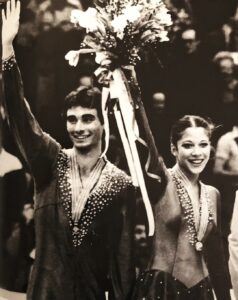
As young skaters, Babilonia and Gardner were already breaking barriers and setting records as children in Los Angeles. Babilonia is African American and so was Fairbanks. In 1973, Babilonia and Gardner became the first skaters the U.S. sent to compete in the former Soviet Union. After winning silver medals at the U.S. Championships in 1974 and 1975, they struck the first of five golds in 1976 and headed to the 1976 Olympics in Innsbruck, Austria, as teenagers. They finished in fifth-place.
“That was a good Olympics for skating because Dorothy (Hamill) won and John Curry won,” Gardner recalled. “I would do that again if I could.”
Babilonia added that there was no pressure because of their ages, saying, “It was a watch and learn moment because the next four years were a different ballgame. That is when the pressure starts.”
Following those games, the pair won bronze medals at the World Championships in 1977 and 1978 in Tokyo and Ottawa respectively. In 1979, they would return to Austria to stand atop the world podium at Vienna.
“Every athlete has one of those nights or events,” Gardner said, “and that was ours. It was a ramp up to our future. Some people get that and some don’t. If you write down your goals as an athlete – that was on the list.”
Skating to Igor Stravinsky’s “The Firebird,” Babilonia and Gardner held off a strong field of Soviet and East German teams.
“Everything went into that one year,” Babilonia remembered. “And we went out, and it was like we had wings. It was almost like an out-of-body experience. It was one of those nights that you don’t want to end.”
Rare company
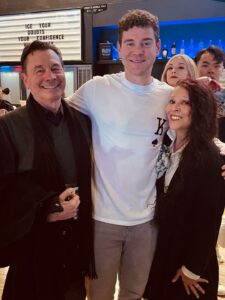 Babilonia and Gardner’s world title was only the second for a U.S. pairs team since the first edition of the event in 1908. Karol and Peter Kennedy, who Gardner mentioned he met, won the first in 1950. It wouldn’t be until 2022, when Alexa Knierim and Brandon Frazier became the third.
Babilonia and Gardner’s world title was only the second for a U.S. pairs team since the first edition of the event in 1908. Karol and Peter Kennedy, who Gardner mentioned he met, won the first in 1950. It wouldn’t be until 2022, when Alexa Knierim and Brandon Frazier became the third.
“I met him at (2025) Worlds in Boston for the first time, and he is a great guy,” Gardner said of Frazier. “He was really fun to be around and coaching up a storm. He is passionate, and I am proud of him.”
End of an era
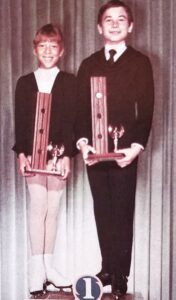 After Babilonia and Gardner won the world title, the pressure was mounting and the media was buzzing in the lead up to the 1980 Lake Placid Olympics.
After Babilonia and Gardner won the world title, the pressure was mounting and the media was buzzing in the lead up to the 1980 Lake Placid Olympics.
Though they had won the U.S. title that year and had qualified for the Olympics, in a heartbreaking twist, Gardner sustained a thigh injury and they were forced to withdraw. That marked the end of their competitive careers. Babilonia stressed that the team had peaked, and they wanted to go out on top. She noted that they had to be strict amateurs in that era and were not opportune to the money the athletes make today.
“Once our amateur career was over,” she said, “you could go coach or we had the big ice shows – the Ice Capades, Ice Follies or Disney on Ice. Now, they stay in because they don’t have these outlets any more. We had access to more as professionals.”
Babilonia said that she and Randy appeared on a Flip Wilson TV special, taped in Sun Valley with Peggy Fleming and speedskater Sheila Young. Because he knew they couldn’t get paid, Wilson gave them Siberian huskies that he used in a skit with Richard Pryor. Tai named hers Flip, while Randy named his Geraldine, after one of Wilson’s characters.
“If we would have accepted money, we would have been disqualified,” Tai said.
Once they turned professional, Babilonia and Gardner toured with the Ice Capades and with Champions on Ice. They also competed professionally, earning first place in the World Professional Championships in 1985.
Go Figure
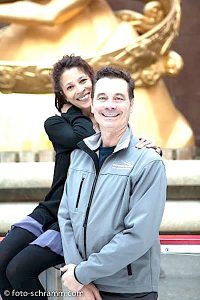 After they retired from show skating, producing biographical stories became a theme for the pair. They performed together in Gardner’s stage show, “Go Figure: The Randy Gardner Story.” The play came about after a theatre director friend of Gardner’s approached him about doing a one-person play, highlighting his eventful life. The live autobiography then became a documentary two years ago.
After they retired from show skating, producing biographical stories became a theme for the pair. They performed together in Gardner’s stage show, “Go Figure: The Randy Gardner Story.” The play came about after a theatre director friend of Gardner’s approached him about doing a one-person play, highlighting his eventful life. The live autobiography then became a documentary two years ago.
“Actually, the film has more in it than the play does, in terms of different angles,” Gardner said. “I just wanted to share my story.”
One of the things mentioned in both the play and film was how Gardner found out at the age of 40 that he was adopted at a young age.
“She happened to be a fan of Tai’s and mine the whole time we were skating,” Gardner added of his birth mother. “But she didn’t know I was her son. I wanted to tell that part of my story.”
Gardner said his birth mother, Dottie, was 16-years-old when she became pregnant with him as a result of rape. She was 17 when she delivered him. After 40 years, a search agent assisted and tracked her to her home in Coeur d’Alene, Idaho.
“I wrote her a letter,” he continued. “You don’t know who knows about your circumstances. In my letter to her, I was a little vague. I said I was a performing athlete. My real name is Lawrence Randolph Gardner, and I told her I was born Lawrence Albright, which is her last name. She knew right away because I told her my birth date. I am really glad I did it!”
Dottie’s husband opened the certified letter and called her at her clerk job at Albertson’s Grocery Store. The mother and son would meet for the first time in person in San Jose, Calif., midway between Idaho and Los Angeles.
The play and film also shared about Gardner’s sexuality as an athlete.
“Also (I wanted to tell about) coming out as a gay athlete and being in the closet in the Seventies and Eighties, even into the Nineties, when I finally felt comfortable about coming out in People Magazine,” he said.
“It’s an incredible story,” Babilonia added. “I am just part of it. I am the best friend and skating partner. There is so much more to it. It’s not a skating documentary, it’s his life, and the off-ice stuff is riveting. He chose to go for it 150 percent, and I could not be more proud.”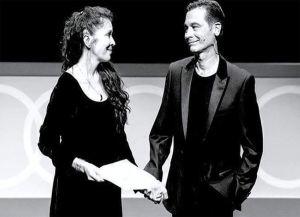
A new project
Babilonia is also working on her own project. She is currently in the pitching process and early stages of developing a biopic film on her former coach, Mabel Fairbanks, with Atoy Wilson, another one of Fairbanks’ students, who was the first African-American U.S. Champion when he won the novice title in 1966.
Fairbanks became fascinated with skating after going to the theatre as a young teenager to watch Sonja Henie in ‘One in a Million,’ according to Babilonia. She passed away in 2001.
“Because of her color,” Tai continued, “she was not able to compete, and she had to create her own venues and skating shows to make a living. You have to believe in how important her story is, not just for figure skating, but to the world. If it weren’t for her, you wouldn’t have Diversify Ice, (Figure) Skating in Harlem or Randy and myself. Eventually, we all went on to other coaches, but she is the one who made skating a much more colorful sport.”
In 1997, Fairbanks became the second African American inducted into the U.S. Figure Skating Hall of Fame. She was second only to Babilonia, who was inducted in 1991. U.S. Figure Skating and the Lisa McGraw Figure Skating Foundation started the Mabel Fairbanks Skatingly Yours Fund in 2021 to financially assist and support the training and development of promising Black, Indigenous and People of Color (BIPOC) figure skaters.
Family time
Though she is busy with her work on the Fairbanks biopic film, Babilonia stresses that her number one priority in her life right now is caring for her 92-year-old mother who has dementia.
“I have learned so much,” she said. “What works for us is laughter and humor. Inject humor everywhere. Not laughing at her, laughing with her and making light of things and not getting angry. Something as simple as putting away cutlery in the dividers; sometimes, she’ll just stare at it. Then you make a little joke.”
Babilonia also frequently posts on social media about her son, Scout, who was recently was promoted to police detective, which was the same career as Babilonia’s father.
“I wish my dad were here,” Tai remarked. “But he would be so proud of Scout for following in his footsteps.”
The new addition to the family is Ryett Scout Butler, who is Babilonia’s one and a half year old grandson, the son of Scout and his fiancé.
“I thought I was all tapped out in the love department,” Tai continued. “There is something left, and I can’t even explain the feeling, but he has stolen my heart.”
For the future
Along with “Go Figure”, Gardner has been running adult skating camps, which started at the Skating Club of Boston and later branched out to Cape Cod, Mass. and Palm Springs, Calif. His newest project is his involvement with the 2028 Summer Olympics in Los Angeles.
“There is a group called Pride House LA,” he said of his role with the 2028 Games. “We are starting with World Cup soccer next year. It’s a place where the LGBTQ+ can meet and gather in a physical space for athletes, coaches and allies. I am doing that at benefits with different charities. I am an ambassador for that. I want to get some people beginning to skate with some clinics and such, as well.”
A story that still inspires
Their unbelievable story continues to inspire in new avenues. As Babilonia watches young pairs team develop, she is often reminded the secret of her and Gardner’s success.
“You rarely see a pair team that starts from when they’re little and they stay together,” Tai concluded. “Now, you see so many jumping from partner to partner if something doesn’t go well. The young girl grows or the puberty fairy strikes. That never happened with us; it was never a thought. If I see a young pair team, I go to the parents or coach and say, ‘Please, give it time.’”
—
To read Scott’s first interview in his catching up with former World and Olympic competitors series:


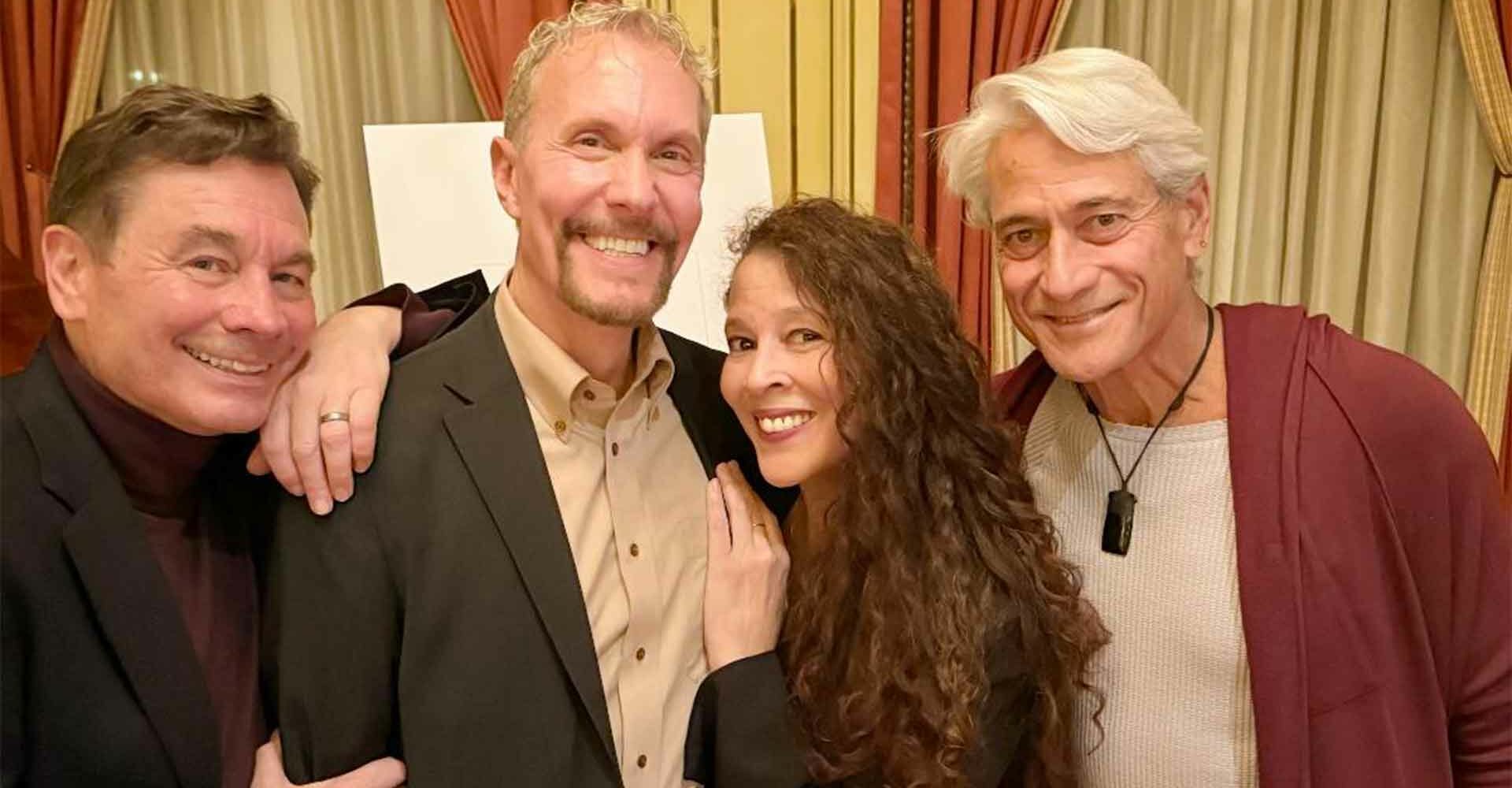


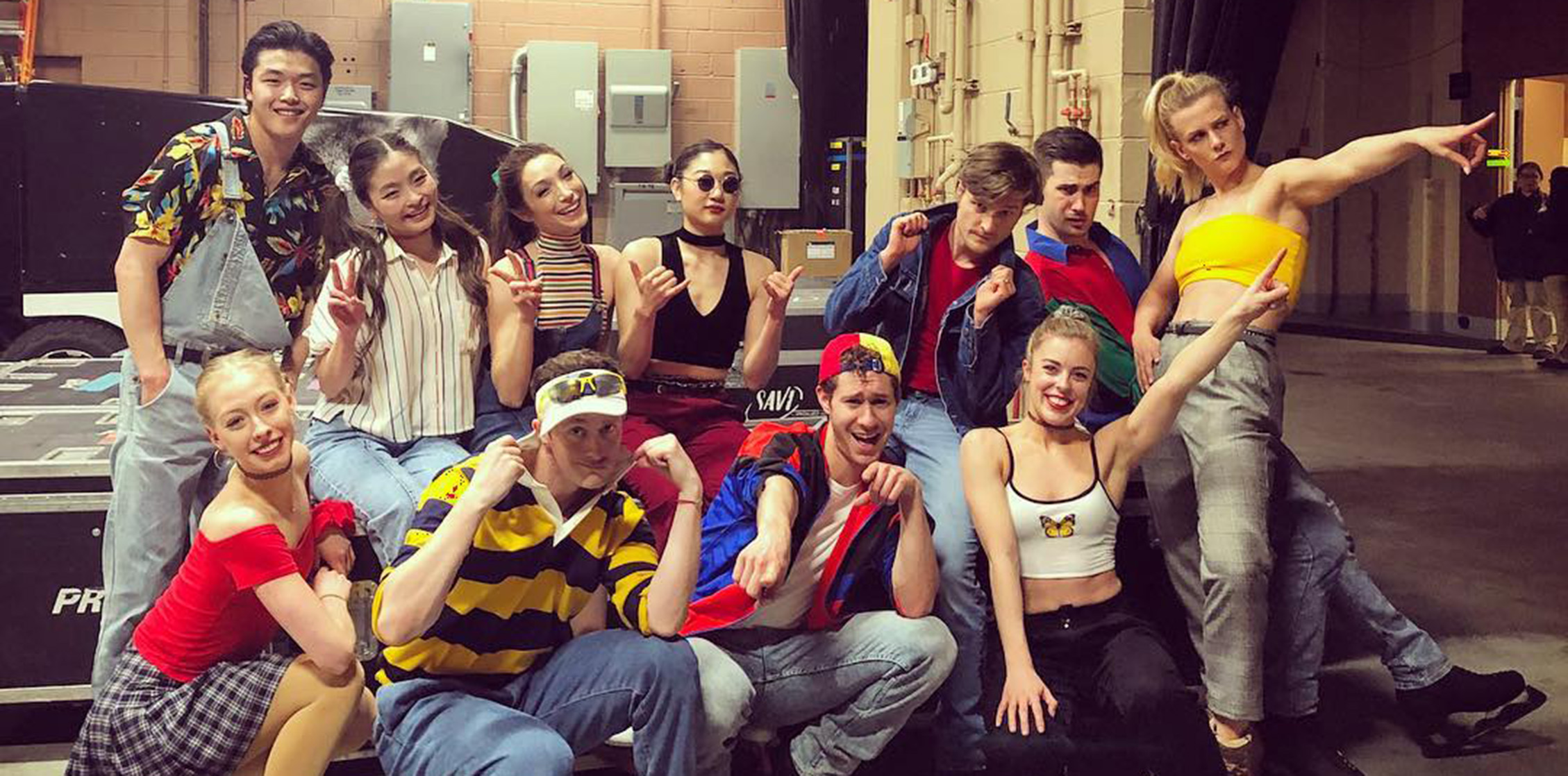
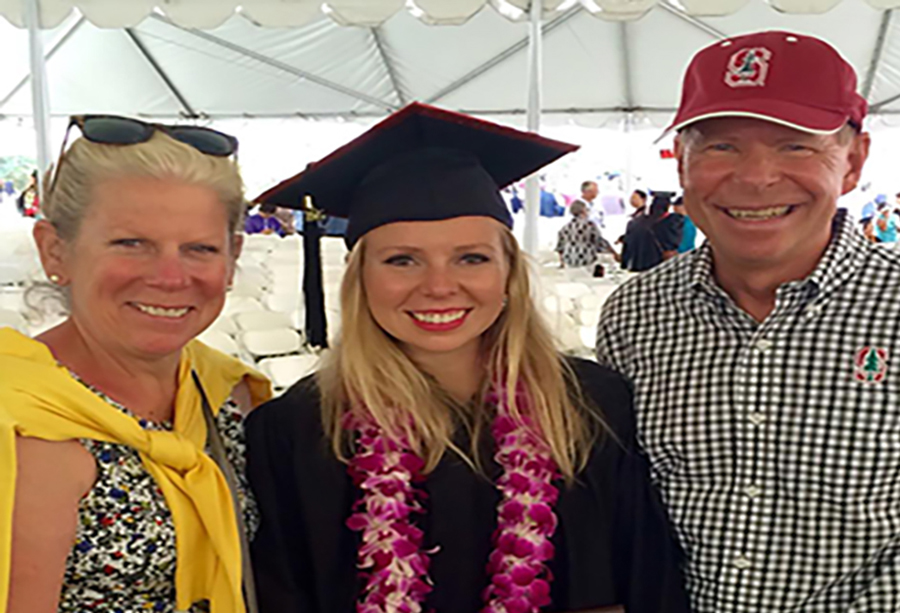
![Audrey Shin: ‘As long as I stay consistent in my training, I have a shot of making it [the Olympic team]’](https://figureskatersonline.com/news/wp-content/uploads/2021/04/IMG_7652_feature.jpg)
